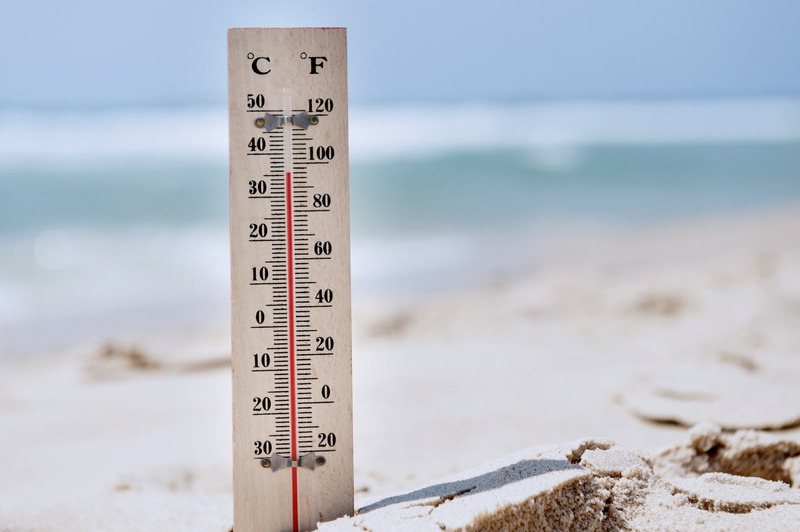Energy-Saving Tips for Your London Residence
Posted on 22/01/2025
In today's world, where energy consumption is at an all-time high, it's crucial to consider energy-saving practices. London residents, in particular, can significantly benefit from adopting energy-efficient measures. Not only will these practices help save money, but they also contribute towards a greener environment. This article offers helpful energy-saving tips tailored for your London residence.
Understanding Your Energy Usage
Before diving into energy-saving tips, it's essential to understand where and how your home consumes energy. Typically, the most significant energy consumption areas include heating, cooling, lighting, and kitchen appliances. Conducting an energy audit can provide insights into these areas, enabling you to identify where energy-saving measures will be most effective.

Insulate Your Home
One of the simplest yet most effective ways to save energy is to ensure your home is well-insulated. Good insulation helps keep the heat in during winters and out during summers. Double glazing your windows, adding loft insulation, and sealing any gaps or cracks can dramatically reduce your energy bills.
Upgrade to Energy-Efficient Appliances
Modern appliances come with energy ratings that indicate their efficiency. Consider replacing old appliances with those that have a high energy efficiency rating (A ). From refrigerators to washing machines, upgrading your appliances can lead to substantial energy savings over time.
Utilize Smart Thermostats
Smart thermostats allow you to control your home's temperature remotely and learn your heating habits to optimize energy consumption. These devices can adjust the heating schedule based on whether you are at home or away, ensuring that energy is not wasted.
Optimize Your Heating System
London's chilly winters mean that a substantial amount of energy is used for heating. Bleeding your radiators, servicing your boiler regularly, and installing thermostatic radiator valves (TRVs) can help your heating system run more efficiently. Moreover, wearing warmer clothes indoors can reduce the need for constant high heating levels.
Switch to LED Lighting
Lighting accounts for a noticeable portion of household energy use. Switching to LED bulbs, which consume up to 80% less energy than incandescent bulbs, can lead to considerable savings. Additionally, ensure to turn off lights in unoccupied rooms and make use of natural daylight as much as possible.
Adopt Water-Saving Measures
Hot water usage can be another significant energy drain. Installing low-flow showerheads and faucets, fixing leaks promptly, and insulating your hot water tank can reduce the energy required to heat water. Moreover, washing clothes at a lower temperature can save energy without compromising cleanliness.
Utilize Renewable Energy Sources
If feasible, consider investing in renewable energy sources such as solar panels or wind turbines. While the initial investment can be high, government incentives and long-term savings make it a worthy consideration. Renewable energy not only reduces your carbon footprint but also provides a more sustainable and cost-effective energy solution in the long run.
Tips for a Sustainable Lifestyle
- Use energy-efficient bulbs and appliances.
- Regularly maintain your heating system.
- Insulate your home adequately.
- Make the most of natural daylight.
- Use smart thermostats to manage heating.
- Adopt water-saving techniques.
- Consider renewable energy options.
Pros and Cons
Pros:
- Lower energy bills.
- Reduced carbon footprint.
- Enhanced comfort with better temperature control.
- Improved appliance efficiency leading to longer lifespan.
- Greater home value with energy-efficient upgrades.
Cons:
- Initial costs for high-efficiency appliances and insulation can be high.
- Installation of renewable energy systems requires significant investment.
- Some changes, like switching to renewable energy, may have a longer payback period.

Takeaways
By adopting a combination of energy-efficient appliances, proper insulation, smart thermostats, and sustainable practices, London residents can significantly cut down on their energy consumption. Small changes, like switching to LED bulbs and using low-flow fixtures, can collectively make a powerful impact.
Conclusion
Energy-saving practices for your London residence not only go a long way in reducing your energy bills but also benefit the environment. By understanding your energy usage, optimizing heating and lighting, using efficient appliances, and considering renewable energy sources, you can make your home more energy-efficient and sustainable. Though there may be some initial costs involved, the long-term benefits far outweigh them, making energy efficiency a wise investment for the future.
Latest Posts
Estimating the Duration to Relocate



